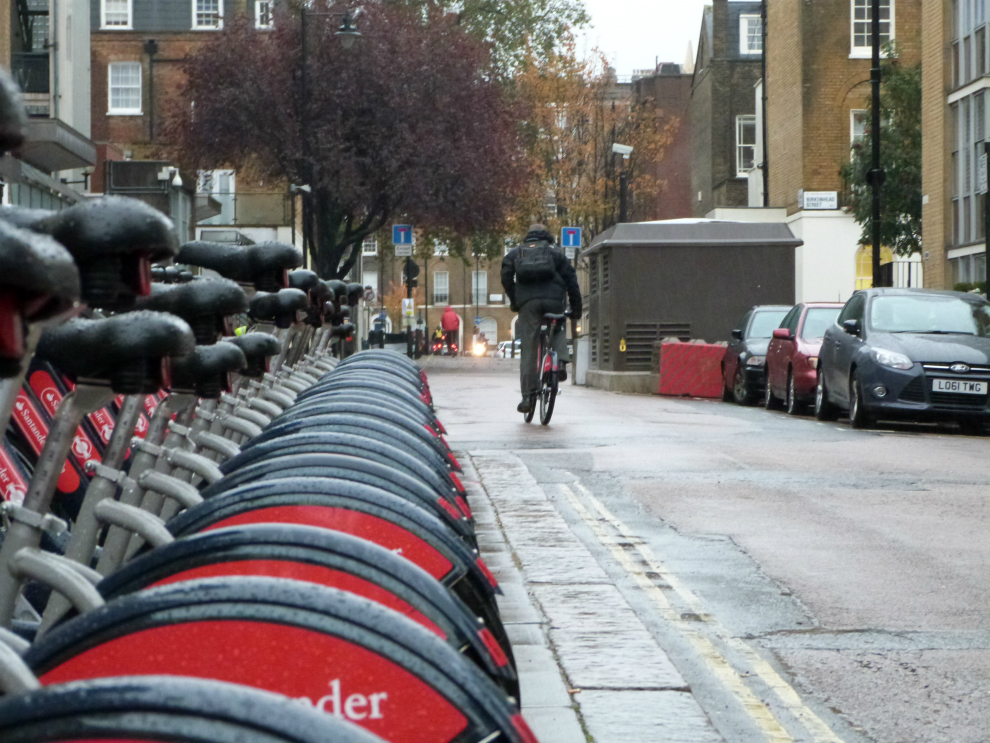Birketts dangerous cycling report
9th March 2018
A report
by barrister Laura Thomas of Birketts, commissioned by the
DfT, has recommended the introduction of new cycling offences. The
title of the report is 'Cycle Safety Review' - a misnomer, as it has
little or nothing to do with cycle safety.
The report's first paragraph reminds us that Jesse Norman announced
the review in two phases - phase one (urgent), looking at the
introduction of offences of causing death or serious injury by
dangerous or careless cycling; phase two (later, non-urgent), a
wider ranging consideration of road safety issues relating to
cycling. The Birketts report relates only to phase one, and not to
cycle safety.
Thomas's report looks at the current laws, and how they are
applied. As evidence, the DfT was able to find 9 cases in the past
10 years where a cyclist had been prosecuted for killing or injuring
a pedestrian. This gives an idea of the scale of this issue: every
unnecessary death is a tragedy, but the carnage caused by motor
vehicles is vastly greater. As well as considering these cases,
Thomas spoke to other barristers, and considered the laws in some
foreign countries.
Birketts dangerous cycling report: conclusion
Thomas's conclusion was that offences of causing serious injury or
death by dangerous or careless cycling should be introduced. This is
to mirror the laws which apply to motor vehicles, and to plug the
gap between the very serious offence of manslaughter, and the lesser
offences of dangerous and careless or inconsiderate cycling (which
are dealt with by Magistrates, and have fines as the maximum
penalty).
Birketts dangerous cycling report: responses to criticisms of the
review
The weakest parts of the report are where Thomas seeks to rebut
criticisms of the DfT's review.
Birketts dangerous cycling report: criticism of the way death by
careless driving is applied
In response to Martin Porter's criticism of the way causing death
by careless driving has been used prosecutors (almost always
preferring the lesser charge to dangerous driving, whatever the
facts), Thomas just says 'Parliament decided this was...necessary',
and the CPS should be trusted to apply the law properly. Those
aren't even counter-arguments, because they don't address the
argument at all. It's just waffle.
Birketts dangerous cycling report: concerns about juries
As regards concerns about juries, and the fact that most jury
members are drivers, but very few have experience of cycling, Thomas
simply says that barristers in the cases concerned should refer
their juries to the Highway Code. It's a thin and unsatisfactory way
of dismissing a legitimate concern.
Birketts dangerous cycling report: knee-jerk reaction
Addressing the widespread criticism that Jesse Norman's review is a
knee-jerk reaction to the Charlie Alliston case, Thomas says that
there is 'not an insignificant number' of collisions between bike
riders and pedestrians. (The number of such collisions resulting in a
pedestrian casualty is detailed, but not the number resulting
in a cyclist casualty; and hidden in the footnotes is the fact that
pedestrians were responsible for more of the collisions than
cyclists).
Norman admitted in his announcement of the review that it was
prompted by publicity, but that isn't mentioned.
Birketts dangerous cycling report: timing
The Birketts report mentions the question of timing - why should
one tiny part of the road safety problem be dealt with urgently and
in isolation, while the vast bulk of road violence caused by drivers
of motor vehicles is put on the back-burner indefinitely? Thomas
says '...[the introduction of cycling offences] is an issue
that should be addressed'. That doesn't answer the question about
timing. Neither does the rest of paragraph 16 of her report: 'It has
perhaps been focused by the untimely death of Mrs Briggs but this is
properly to be considered as a converging of issues rather than a
single, tragic event precipitating a reaction. The tragedy
concerning Mrs Briggs could be said to be the trigger rather than
the cause. In short, the timing appears to be appropriate.'
In other words, it absolutely is a knee-jerk reaction to the
Alliston case, but Thomas doesn't wish to admit that. No doubt, it
wouldn't be polite or good for business to accuse the people at the
DfT who commissioned her to write the report of knee-jerk reactions.
It's a 'converging of issues', but the only issue anyone is aware
of is the Alliston case.
As for the semantic argument about whether the Alliston case is the
trigger or the cause, the reality is that newspaper headlines are
the reason why we're having this review. It is populist and cynical,
not evidence-based good government.
'In short, the timing is appropriate' is detail-free and
extraordinarily unconvincing.
So it seems we go on with this charade. If the Daily Mail and the
BBC give disproportionate coverage to a case, because it suits their
agenda to demonise people who use a particular form of transport,
Jesse Norman, the DfT, and this government will act urgently. All
the road safety problems caused by motor vehicles, meanwhile, are
too difficult for them to deal with. Urgent action only happens when
they calculate it will garner them favourable headlines in the
tabloids.




